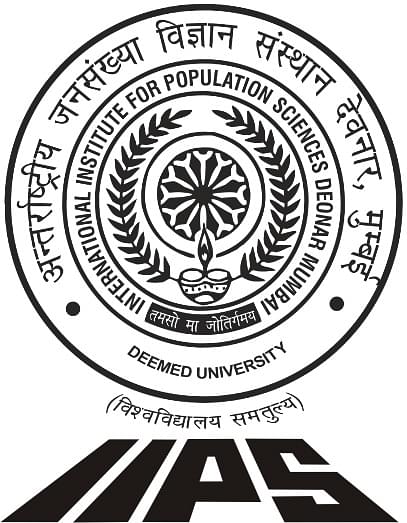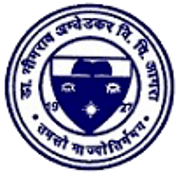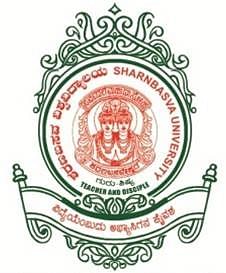Introduction about BSc Fisheries
A Bachelor of Science (BSc) in Fisheries from the best college in India
is an undergraduate degree program that focuses on the study of aquatic
ecosystems, fish biology, fisheries management, and aquaculture. It is designed
to provide students with a comprehensive understanding of the scientific
principles, practices, and technologies used in the management and sustainable
utilization of aquatic resources. Here's an introduction to BSc Fisheries:
§ Program Overview: BSc
Fisheries programs are interdisciplinary in nature, drawing on principles from
biology, ecology, environmental science, marine science, aquaculture, and
fisheries management. The curriculum is designed to equip students with the
knowledge and skills needed to address the complex challenges facing fisheries
and aquaculture industries worldwide.
§ Core Subjects: The
curriculum typically includes a combination of core subjects covering various
aspects of fisheries science and aquaculture. These subjects may include:
Fish Biology and Anatomy
Fisheries Ecology and Conservation
Aquatic Ecosystems and Limnology
Fisheries Management and Policy
Aquaculture Principles and Practices
Fish Nutrition and Feed Technology
Fish Health and Diseases
Fisheries Economics and Marketing
§ Practical Training: BSc
Fisheries programs often include hands-on training and fieldwork opportunities
to provide students with practical experience in fisheries science,
aquaculture, and field research. Students may participate in laboratory
experiments, field trips, fish culture demonstrations, and internships with
government agencies, research institutions, or aquaculture facilities.
§ Specialization
Tracks: Some BSc Fisheries programs offer specialization tracks or elective
courses that allow students to focus their studies on specific areas of
interest within the field of fisheries and aquaculture. Specialization tracks
may include marine fisheries, freshwater fisheries, aquaculture production
systems, fish health management, or fisheries conservation and restoration.
§ Research
Opportunities: BSc Fisheries students may have the opportunity to engage in research
projects, independent studies, or thesis projects under the guidance of faculty
mentors. Research experiences allow students to explore specialized topics,
conduct scientific investigations, and contribute to the advancement of
knowledge in fisheries science and aquaculture.
§ Industry Engagement: BSc
Fisheries programs often emphasize industry engagement and collaboration with
stakeholders in the fisheries and aquaculture sectors. Students may interact
with professionals from government agencies, non-profit organizations,
aquaculture farms, fish processing facilities, seafood markets, and
environmental consulting firms through guest lectures, field trips, and
networking events.
§ Career Preparation:
Graduates of BSc Fisheries programs are prepared for diverse career
opportunities in fisheries and aquaculture industries, government agencies,
research institutions, non-profit organizations, consulting firms, and
academia. They may work as fisheries biologists, aquaculture technicians,
fishery managers, seafood quality inspectors, fish health specialists,
aquaculture entrepreneurs, or environmental consultants.
Global
Perspectives: BSc Fisheries programs often address global issues such as
overfishing, habitat degradation, climate change, seafood sustainability, and
food security. Students learn about international fisheries agreements, marine
conservation initiatives, sustainable aquaculture practices, and the role of
fisheries in supporting livelihoods and economies worldwide.
Overall, a BSc in Fisheries provides students with a solid foundation in
fisheries science, aquaculture, and aquatic resource management, equipping them
with the knowledge, skills, and practical experience needed to address the
complex challenges facing aquatic ecosystems and fisheries industries in the
21st century.
What is eligibility for BSc Fisheries ?
The eligibility criteria for a Bachelor of Science (BSc) at program in
Fisheries can vary depending on the institution offering the program and the
country or region in which it is located. However, here are some common
eligibility requirements you might encounter when applying for a BSc Fisheries
program:
§ Educational
Background: Applicants are typically required to have completed secondary
education or its equivalent, such as high school, A-levels, or international
baccalaureate (IB) diploma. They should have a strong foundation in science
subjects, particularly biology, chemistry, and mathematics.
§ Minimum Academic
Requirements: Institutions may specify minimum academic requirements for admission,
such as minimum grades or grade point average (GPA) in relevant subjects. These
requirements may vary depending on the competitiveness of the program and the
institution's admission standards.
§ Prerequisite
Courses: Some BSc Fisheries programs may require applicants to have completed
specific prerequisite courses in biology, chemistry, physics, or mathematics
during their secondary education. These courses ensure that students have the
necessary background knowledge to succeed in the program.
§ Entrance
Examinations (if applicable): In some countries or institutions,
applicants may be required to take entrance examinations or standardized tests
as part of the admission process. These examinations may assess the applicant's
knowledge and skills in relevant subjects such as biology, chemistry, and
mathematics.
§ Language
Proficiency: If the language of instruction for the BSc Fisheries program is not
the applicant's native language, they may be required to demonstrate
proficiency in the language of instruction through standardized language tests
such as the TOEFL (Test of English as a Foreign Language) or IELTS
(International English Language Testing System).
§ Other Admission
Requirements: Depending on the institution, applicants may need to submit additional
materials as part of the application process, such as letters of
recommendation, personal statements or essays, a resume or curriculum vitae
(CV), or evidence of extracurricular activities or achievements.
§ Interview (if
applicable): Some institutions may require applicants to participate in an
interview as part of the admission process. The interview allows admissions
committees to assess the applicant's motivation, academic interests,
communication skills, and suitability for the program.
It's important to carefully review the specific eligibility requirements
and admission procedures of each BSc Fisheries program to which you are
applying. Institutions may have different criteria and deadlines for admission,
so be sure to check the program's website or contact the admissions office for
detailed information.
What is admission process for BSc Fisheries ?
The admission process for a Bachelor of Science (BSc) in Fisheries at the top affordable university can vary depending on the institution offering
the program and the specific requirements of the program. However, here's a
general overview of the typical admission process for a BSc Fisheries program:
Research
and Exploration: Before applying to BSc Fisheries programs,
research different institutions and their offerings to find programs that align
with your academic interests, career goals, and personal preferences. Consider
factors such as program curriculum, faculty expertise, research opportunities,
facilities, location, and accreditation.
Application
Submission: Begin the application process by submitting an application form
through the institution's admissions website or portal. Be sure to review the
application deadlines and requirements carefully, as they can vary from program
to program.
Transcripts: Request
official transcripts from all post-secondary institutions you have attended,
including secondary education or its equivalent. These transcripts should be
sent directly to the admissions office of the BSc Fisheries program to which
you are applying.
Standardized
Tests (if applicable): Some institutions or programs may require
applicants to submit standardized test scores, such as the SAT (Scholastic
Assessment Test) or ACT (American College Testing) for domestic students, or
English proficiency tests such as the TOEFL (Test of English as a Foreign
Language) or IELTS (International English Language Testing System) for
international students. If required, register for the exam and have your scores
sent directly to the institution.
Letters
of Recommendation: Some BSc Fisheries programs may require letters
of recommendation from teachers, counselors, or other individuals who can speak
to your academic abilities, work ethic, and potential for success in the
program. Be sure to provide your recommenders with any required forms or
instructions for submitting letters of recommendation.
Personal
Statement or Essay: Write a personal statement or essay that
highlights your academic background, career goals, reasons for pursuing a BSc
in Fisheries, and how the program aligns with your interests and aspirations.
The personal statement provides admissions committees with insights into your
motivation, aspirations, and suitability for the program.
Interview
(if applicable): Some BSc Fisheries programs may require
applicants to participate in an interview as part of the admission process. If
invited for an interview, prepare by familiarizing yourself with the program,
articulating your academic interests and goals, and being ready to discuss your
background and experiences.
Additional
Materials (if applicable): Depending on the program, you may need to submit
additional materials as part of the application process, such as a resume or
curriculum vitae (CV), evidence of extracurricular activities or achievements,
or a portfolio of relevant work.
Application
Review and Admission Decision: After submitting your application materials,
the admissions committee will review your transcripts, test scores, letters of
recommendation, personal statement, and any additional materials submitted. You
will receive an admission decision from the institution within a specified
timeframe.
Enrollment
and Registration: If accepted, you will receive instructions on how
to enroll in the BSc Fisheries program and register for classes. Be sure to
complete any additional requirements, such as submitting a tuition deposit or
attending orientation sessions, as specified by the institution.
It's important to start the application process early, gather all
required materials, and carefully follow the instructions provided by each BSc
Fisheries program to which you are applying. Be sure to double-check
application deadlines, submission requirements, and any additional materials or
steps needed for a complete application. If you have any questions about the
admission process, don't hesitate to reach out to the admissions office or
program coordinator for clarification.
What is syllabus for BSc Fisheries ?
The syllabus for a Bachelor of Science (BSc) program in Fisheries at top colleges can vary depending on the institution offering the program and the
specific requirements of the curriculum. However, here's a general overview of
the types of courses and topics you might encounter in a BSc Fisheries program:
Ø Foundation Courses
in Biology and Chemistry:
Introduction to Biology
General Chemistry
Organic Chemistry
Biochemistry
Cell Biology
Ø Fisheries Core
Courses:
Introduction to Fisheries Science
Fisheries Biology and Ecology
Fish Taxonomy and Identification
Aquatic Ecosystems and Limnology
Marine Biology
Ichthyology (Study of Fish)
Ø Aquaculture
Principles and Practices:
Introduction to Aquaculture
Aquaculture Systems and Facilities
Fish Nutrition and Feeding
Fish Health and Diseases
Aquaculture Management and Production
Shellfish Culture
Freshwater and Marine Fish Culture
Ø Fisheries
Management and Conservation:
Fisheries Management Principles
Fish Population Dynamics
Fisheries Economics and Policy
Fisheries Law and Regulations
Stock Assessment Methods
Fishery Conservation and Restoration
Marine Protected Areas and Conservation Planning
Ø Fish Processing and
Quality Control:
Fish Processing Technology
Quality Control and Assurance
Fish Preservation Techniques
Seafood Safety and Hygiene
Value-Added Fish Products
Fishery Byproducts and Waste Management
Ø Research Methods
and Data Analysis:
Research Design and Methodology
Statistical Analysis for Fisheries Science
Data Collection and Sampling Techniques
Fisheries Survey Methods
Geographic Information Systems (GIS) for Fisheries
Ø Elective Courses:
Marine Ecology
Fish Behavior and Physiology
Fisheries Genetics and Biotechnology
Fishery Engineering and Technology
Fisheries Extension and Outreach
Aquatic Environmental Management
Ø Internship or Field
Experience:
Practical Training in Fisheries Science or Aquaculture
Fieldwork in Aquatic Ecosystems or Fisheries Management
Internship with Government Agencies or Aquaculture Companies
Ø Capstone Project or
Thesis:
Independent Research Project in Fisheries Science or Aquaculture
Senior Thesis in Fisheries
Culminating Experience in Fisheries Management or Aquaculture
Ø Professional
Development and Communication:
Fisheries Seminar Series
Professional Writing and Communication Skills
Fisheries Career Development Workshops
Ethics in Fisheries Science and Management
Keep in mind that the specific syllabus and course offerings of a BSc
Fisheries program can vary from one institution to another, so it's important
to review the curriculum of individual programs to find one that aligns with
your interests, career goals, and aspirations in the field of fisheries science
and aquaculture. Additionally, some programs may offer specialization tracks,
elective courses, or interdisciplinary coursework that allow students to tailor
their education to specific areas of interest within fisheries science and
aquaculture.
What are scopes after BSc Fisheries ?
After completing a Bachelor of Science (BSc) program in Fisheries,
graduates have various career opportunities available to them in the fisheries
and aquaculture sectors, as well as related fields. Here are some potential
scopes and career paths for individuals with a BSc in Fisheries:
1.
Fisheries Biologist or Scientist:
Graduates can work as fisheries biologists or scientists in government agencies,
research institutions, consulting firms, or non-profit organizations. They
study fish populations, habitats, and ecosystems, conduct research on fisheries
management and conservation, and develop strategies for sustainable fisheries
practices.
2.
Aquaculture Technician or Manager:
Graduates may pursue careers in aquaculture farms, hatcheries, or fish
production facilities, working as aquaculture technicians, farm managers, or
production supervisors. They oversee fish cultivation, breeding, feeding, and
health management, and ensure optimal production and quality of aquatic
products.
3.
Fisheries Manager or Administrator:
Graduates can work in fisheries management agencies, regulatory bodies, or
environmental organizations, overseeing fishery resources, implementing
conservation measures, and enforcing fishing regulations. They develop and
implement fisheries management plans, monitor fish stocks, and assess the
impact of fishing activities on aquatic ecosystems.
4.
Fisheries Extension Officer or Educator:
Graduates may work as fisheries extension officers, educators, or outreach
specialists, providing technical assistance, training, and education to
fishermen, aquaculturists, and coastal communities. They disseminate
information on sustainable fishing practices, aquaculture techniques, and
marine conservation initiatives.
5.
Fishery Quality Control Inspector:
Graduates can work as fishery quality control inspectors or seafood safety
officers in government agencies, seafood processing plants, or quality
assurance firms. They ensure compliance with food safety regulations, conduct
inspections, audits, and sampling of seafood products, and monitor adherence to
quality standards.
6.
Fishery Business and Marketing Specialist:
Graduates may pursue careers in fishery business management, marketing, or
sales in seafood companies, fish markets, or aquaculture enterprises. They
develop marketing strategies, manage supply chains, negotiate contracts, and
promote seafood products to consumers and businesses.
7.
Aquatic Environmental Consultant:
Graduates can work as environmental consultants or specialists, providing
expertise on aquatic ecology, habitat restoration, water quality assessment,
and environmental impact assessment. They conduct environmental surveys,
analyze data, and develop mitigation measures for aquatic resource management
projects.
8.
Research Associate or Technician:
Graduates may work as research associates or technicians in academic research
labs, government agencies, or private research organizations. They assist with
research projects, conduct experiments, collect data, analyze results, and
contribute to scientific publications in the field of fisheries science and
aquaculture.
9.
Seafood Processing and Technology Specialist:
Graduates can work in seafood processing plants, fish processing facilities, or
food technology companies, specializing in seafood processing, preservation,
and value-added product development. They develop new processing techniques,
optimize production processes, and ensure product quality and safety.
10.
Further Education and Research: Some
graduates may choose to pursue further education by enrolling in graduate
programs such as Master of Science (MSc) or Doctor of Philosophy (Ph.D.) in
Fisheries Science, Aquaculture, Marine Biology, or related fields. Advanced
degrees can lead to opportunities in academia, research, industry leadership,
or specialized roles in fisheries science and aquaculture.
These are just a few examples of the career scopes and opportunities
available to graduates with a BSc in Fisheries. The fisheries and aquaculture
sectors offer diverse career paths, allowing individuals to apply their
knowledge and skills to address global challenges such as food security,
environmental sustainability, and aquatic resource management.












